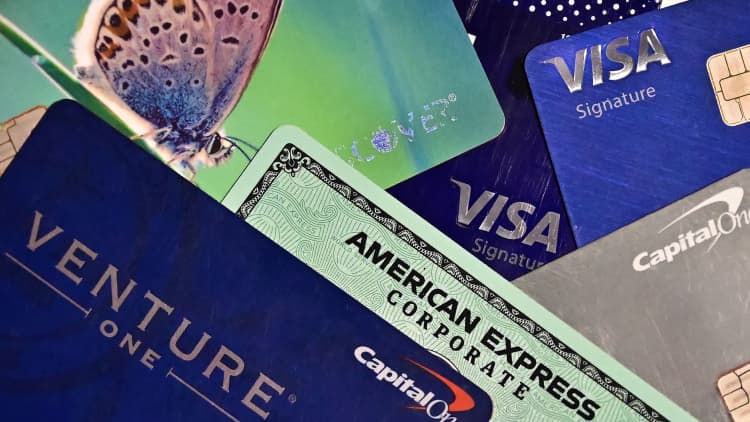
Who is falling behind on credit card bills
These borrowers “may have overextended during the pandemic,” the New York Fed researchers said on a press call Tuesday.
Delinquent borrowers are often renters, with shorter credit histories and lower credit limits, making them more likely to be financially vulnerable and miss a payment, the researchers said.
Over the last year, roughly 9.1% of credit card balances transitioned into delinquency, the New York Fed found.
In the years since the pandemic, homeownership has been one of the greatest tools of wealth creation — and those who have been priced out of the housing market have disproportionately struggled to achieve the same level of financial security, according to Brett House, economics professor at Columbia Business School.
Among the millennials transitioning into delinquency, many also entered the labor market during the Great Recession and may be experiencing the prolonged negative effects of graduating into an economic downturn, the New York Fed researchers said. Those who join the workforce in a period of elevated unemployment have lower long-term earnings, many studies show.
50% of Americans are carrying a balance
These days, 57% of consumers rely on credit cards to make ends meet, according to a separate survey by Achieve, and 36% of consumers said it is difficult to pay recurring debts on time. Achieve polled 2,000 adults with one or more kinds of consumer debt in June.
Of those surveyed who had missed a payment, most cited a job loss or reduced income as the main reason they have recently fallen behind.
Now half of cardholders carry debt from month to month, according to another report by Bankrate.
“High inflation and high interest rates have eroded Americans’ savings and more people are carrying more debt for longer periods of time,” said Ted Rossman, Bankrate’s senior industry analyst.
Credit card rates top 20%
At the same time, credit cards have become one of the most expensive ways to borrow money. Credit card rates, already high in recent years, spiked when the Federal Reserve began raising interest rates to tame inflation.
Since most credit cards have a variable rate, there’s a direct connection to the Fed’s benchmark. As the federal funds rate rose, the prime rate did as well, and credit card rates followed suit.
Lower-income households, who had to stretch to cover price increases, have been hit especially hard after a string of 11 rate hikes lifted the average credit card rate to more than 20% — near an all-time high.
“With credit card balances at an all-time high and the average credit card rate hovering near record territory, it’s more important than ever to pay down this debt as soon as possible,” Rossman said.
With that annual percentage rate of 20%, if you made minimum payments toward the average credit card balance of $6,218, it would take you 18 years to pay off the debt and cost you more than $9,300 in interest in that time period, Rossman calculated.

